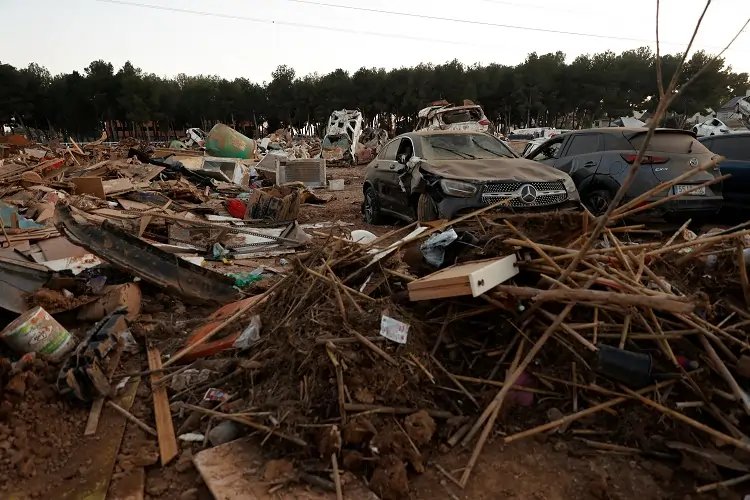Floods slow Spanish manufacturing growth in November, PMI shows


MADRID (Reuters) – Spain’s manufacturing sector expanded at a slower pace in November, hindered by the severe floods in the region of Valencia on the eastern coast, a survey showed on Monday, though confidence in future growth remained robust.
MADRID (Reuters) – Spain’s manufacturing sector expanded at a slower pace in November, hindered by the severe floods in the region of Valencia on the eastern coast, a survey showed on Monday, though confidence in future growth remained robust.
The HCOB Spain Manufacturing Purchasing Managers’ Index (PMI), compiled by S&P Global, fell to 53.1 in November from 54.5 in October, marking the tenth consecutive month above the 50.0 threshold that indicates growth in activity.
The decline was partly attributed to the deadliest floods in the country’s modern history that killed more than 200 people on Oct. 29 and 30.
Despite the slowdown, output and new orders continued to rise, supported by strong export demand, particularly from neighbouring European countries. New export orders grew at the fastest rate since September 2021.
The Spanish manufacturing sector continued its expansion in November – albeit at a slower pace and despite the fatal floods in the region of Valencia,” Jonas Feldhusen, Junior Economist at Hamburg Commercial Bank was cited in the S&P monthly report.
Employment in the sector rose for the third consecutive month, driven by higher workloads and production constraints.
Input cost inflation accelerated but remained modest, with firms citing higher raw material prices, especially for metals. Despite this, competitive pressures kept output charges slightly down for the third month in a row.
Confidence in the outlook improved, reaching its highest level since May, as firms anticipated a more stable global economic environment and positive results from planned commercial actions.
The November PMI data seem to indicate the strong economic growth recorded in the third quarter continued into the next one.
Spain’s statistics department on Wednesday said the economy expanded at a faster than expected 0.8% pace in the third quarter, compared with 0.4% for the euro zone as a whole, with annual growth reaching 3.4%.
The government recently upgraded its growth forecast for 2024 to 2.7%.
(Reporting by Inti Landauro; Editing by Toby Chopra)
GDP, or Gross Domestic Product, is the total monetary value of all goods and services produced in a country over a specific time period, indicating economic performance.
Economic growth refers to the increase in the production of goods and services in an economy over time, often measured by GDP.
New orders refer to the total number of new purchase orders received by manufacturers, indicating future production and economic activity.
Employment in the manufacturing sector refers to the number of jobs and workforce engaged in producing goods within the manufacturing industry.
Explore more articles in the Top Stories category











